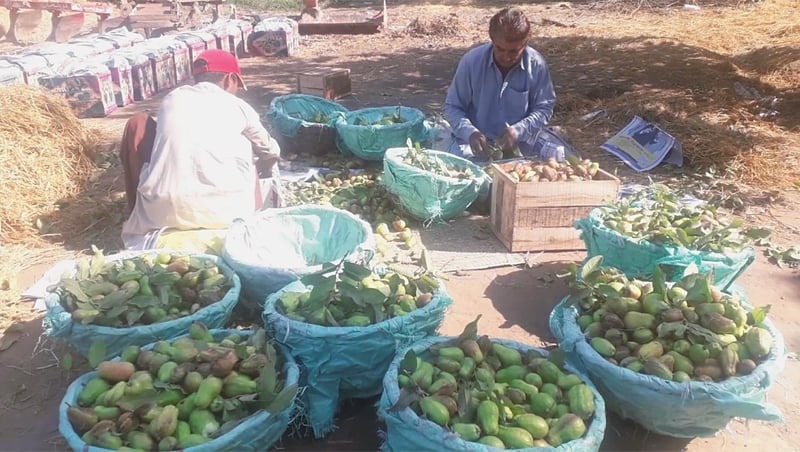ISLAMABAD: Pakistani growers have been advised to adopt modern management techniques to increase guava yield and prevent pest attacks, WealthPK reports.
Guava production is adversely affected by a number of factors including outdated planting material, inadequate management techniques, excessive fruit loss and insect infestations. Better management of guava orchards could increase the yield by resolving these problems.
Dr Nurullah, a senior scientific officer at National Agriculture Research Centre (NARC), told WealthPK that guava is a climacteric fruit but its production was not of optimal level in Pakistan.
“Insect pests are one of the many factors that contribute to a drop in its production. It is imperative to continuously monitor the insect pest populations in the guava orchards to determine the need and usefulness of any management effort,” he said.
The guava plant is widely grown in Punjab and Sindh. It is a tropical tree that can adapt to most climatic and soil conditions.
“Fruits from guava trees have a sweet aroma. In the ripe stage, guavas emit a strong odour that attracts fruit flies. In Pakistan, fruit flies are a major pest of guava. By causing both direct and indirect losses, their destructive character poses a major obstacle to the promotion of the export of fruits and vegetables,” said Dr Nurullah.
He said that fruit flies lay their eggs beneath the fruits’ skin and the maggots are fed on the flesh. “The damage causes guavas to rot. Due to their extensive host range, strong reproduction capability and climate adaptation, fruit flies are one of the most destructive pests in the world, eating on and destroying the majority of fruits and vegetables,” he added.
Dr Nurullah said that Tephritid fruit flies posed a serious threat to Pakistan’s horticultural sector as they targeted a variety of fruits and vegetables including guava, causing both direct and indirect losses to guava orchards.
He said that pesticide residues used to eliminate the insect also posed a risk to the export of the fruit. He said that the destructive character of the insect was a major hurdle to promoting the export of fruits and vegetables.
“Infestations of fruit flies spread quickly, but early diagnosis and treatment help to reduce the losses. Guava should be harvested before they are fully ripe. Early picking avoids infestations because fruit flies mainly target ripe fruit. Grab any guava fruit that has fallen on the ground before it ripens and attracts pests. Keep an eye out for pest infestations on fruit. Spray a protein bait on the underside of guava leaves to draw them together so you can kill them all at once. Every week, reapply the spray,” Dr Nuraullah suggested to the growers and orchard owners.
In almost all regions of the world where guava fruit is grown, there are numerous fruit insect pests. These insects attack commercially produced fruits. Some species have spread to areas far from where they originally were pests. “In such cases, quarantine restrictions must be implemented to prevent further fruit pest spread. A producing country’s products may not be allowed into the importing country due to quarantine laws, or the producer may be required to pay for costly disinfestation procedures,” he told WealthPK.






